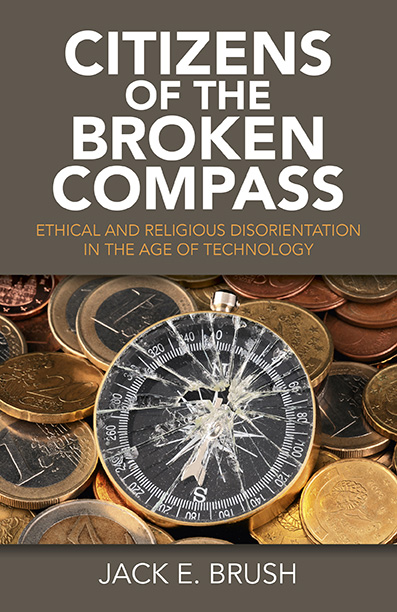Citizens of the Broken Compass
This collection of essays aims at promoting dialogue between groups that have become polarized over issues such as: human rights, same-sex marriage and religion.

This collection of essays aims at promoting dialogue between groups that have become polarized over issues such as: human rights, same-sex marriage and religion.
This collection of essays aims at promoting dialogue between groups that have become polarized over issues such as: human rights, same-sex marriage and religion.
Ethics & moral philosophy, Religion & science, Sociology (general)
Citizens of the Broken Compass is a collection of articles dealing with a range of topics from the theory of evolution to human rights.
Intelligent yet accessible, it aims at promoting dialogue about the growing discrepancy between our technological achievements and our ethical sensitivities; proposing the ethical disorientation in society cannot be separated from the religious confusions stemming from a radical, fundamentalist view of Christianity.
Click on the circles below to see more reviews
These stimulating an well-informed essays discuss ethical and religious disorientation in the age of technology, covering a wide range of topics such as consumerism, same-sex marriage, the just way, Darwin, linguistic events, human rights individual interests and the common good, and forms of atheism. The title suggests that we do not receive any reliable orientation in matters of great importance. The author uses as guidelines the ideas that here are no absolutes, that solutions are contextual, and that the resolution of complex issues requires dialogue employing complementary concepts. He suggests that we experience a disrupted relationship between time and eternity when in fact they belong together. Brush begins by discussing consumerism and the problem of self-identity within the larger context of the 'economisation' of society, This has its roots in the 18th century but now plays a central role in establishing personal identity in terms of status symbols. As such, it is a superficial solution to the problem of identity. His discussion on same-sex marriage illuminates the radically different moral visions of the debate in the US - biblical conservativism and Enlightenment rationality. I found his essay on Darwin one the most interesting in his description of his background, specially in relation to Paley's argument for design - it is easy to forget that Darwin studied theology at Cambridge. The influence of his grandfather Josiah Wedgwood was fundamental in shaping his understanding of competition and free markets, but he also played a role in convincing his father to allow him to embark on the Beagle. An important theme running through three of the essays is the notion of the common good. In one context, Brush draws a parallel between the non-separability of quantum events and the holistic view of reality, remarking that 'they have their counterparts in the moral complicity of the individual and in the responsibility of all citizens fir the common good'. He criticises human rights as atomistic and individualistic, noting that the Stoic idea of natural rights was cosmic rather than individual. Hobbes made an important contribution by basing his right of nature as a claim rather than a duty, corresponding to atomism. In contrast, 'there is a connectivity of the universe that mandates a return to a more holistic view of society, specifically to the notion of common good'. In the US, the supreme individual interest is thought to be freedom, while the defining common good is security. By contrast, Brush supports Plato's view that individual interests do not provide a viable basis for society since they tend to separate citizens. The two essays on atheism are also very helpful in formulating important distinctions, for instance between theoretical, practical and religious atheism. He maintains that 'theoretical atheism denies the ultimate; practical atheism ignores the ultimate; religious atheism trivialises the ultimate'. Atheism is always contextual, related to an individual's particular understanding of the world. Brush makes the case along with Tillich that critics of religions should attack the most advanced rather than obsolete forms of theology set up as straw men. Interestingly, drawing on Hannah Arendt's distinction between entertainment and culture, he links practical atheism with the consumption of entertainment on flat screens as a distraction. He also refers to Tillich's concept of ultimate concern - distraction lends itself to ignoring or trivalising the ultimate. Ethically, individualism also raises the question of the limits of our moral obligation - who counts as our neighbour? At the end, Brush returns to the topic of the relationship between time and eternity, defining eternity as the experience of the fullness of time where past and future coalesce in the present. He suggests that we need a new way of experiencing relationships and a new way of experiencing the movement of time, leading to an understanding of religion as existential rather than theoretical, enriching out condition and opening up access to the divine presence. This is surely a more constructive way of moving beyond atheism, although atheists might well accept this argument while maintaining their position. The book not only provides some interesting historical background to the issues considered, but also personal reflections that we can incorporate into our own thinking and lives. ~ David Lorimer , Network Review: Journal of the Scientific and Medical Network - August issue